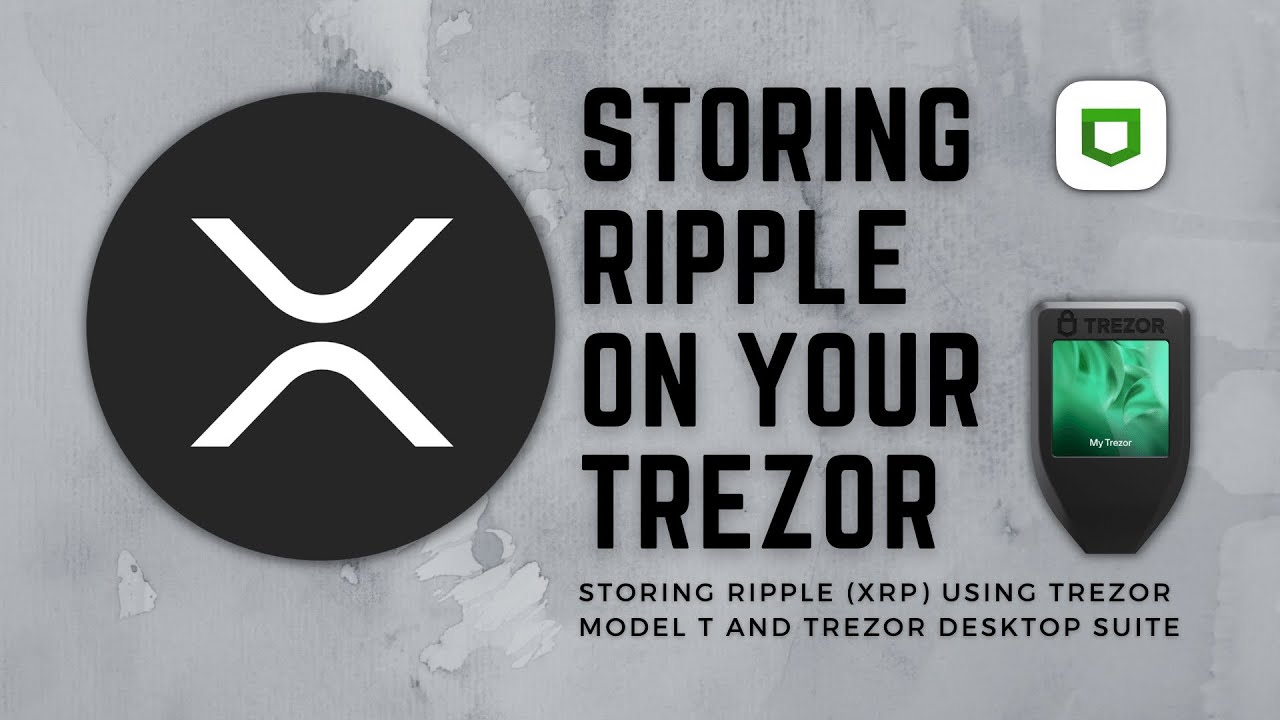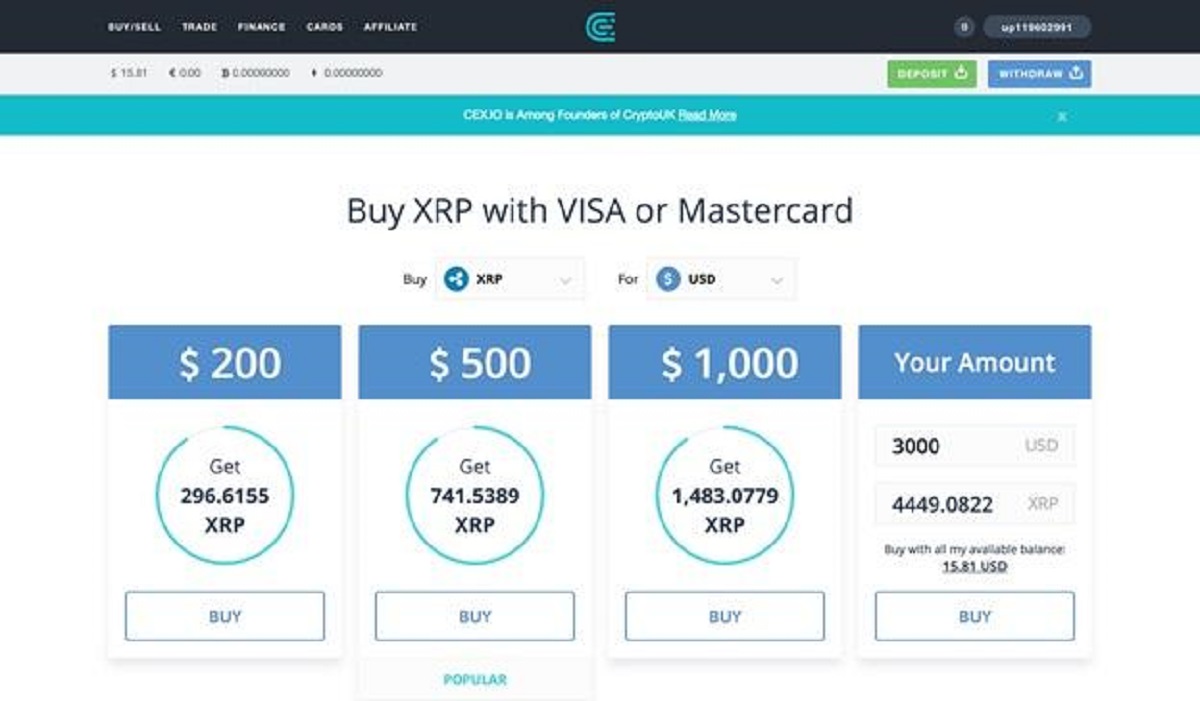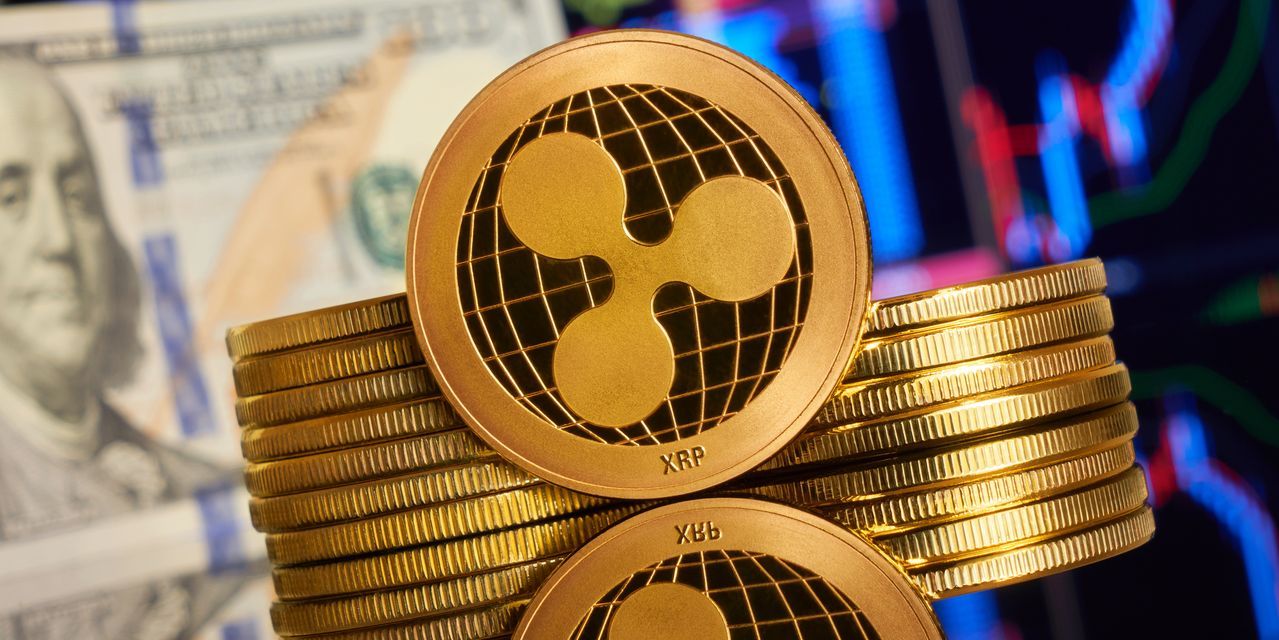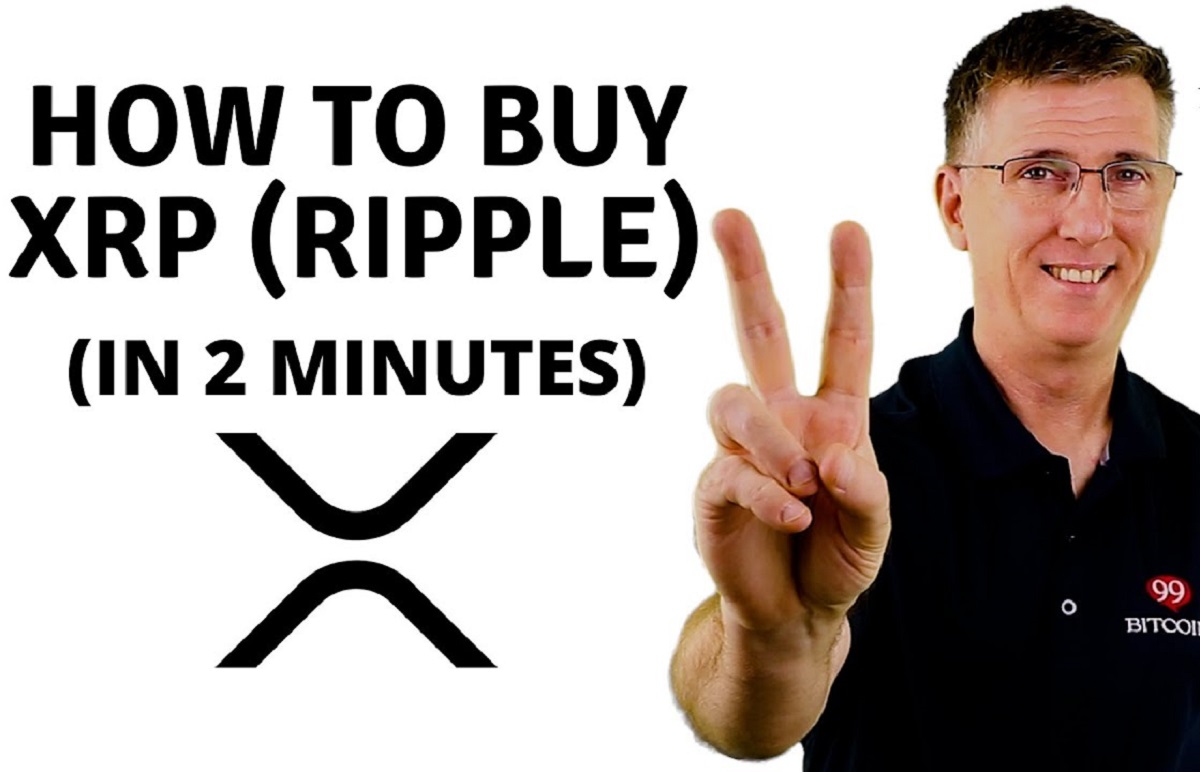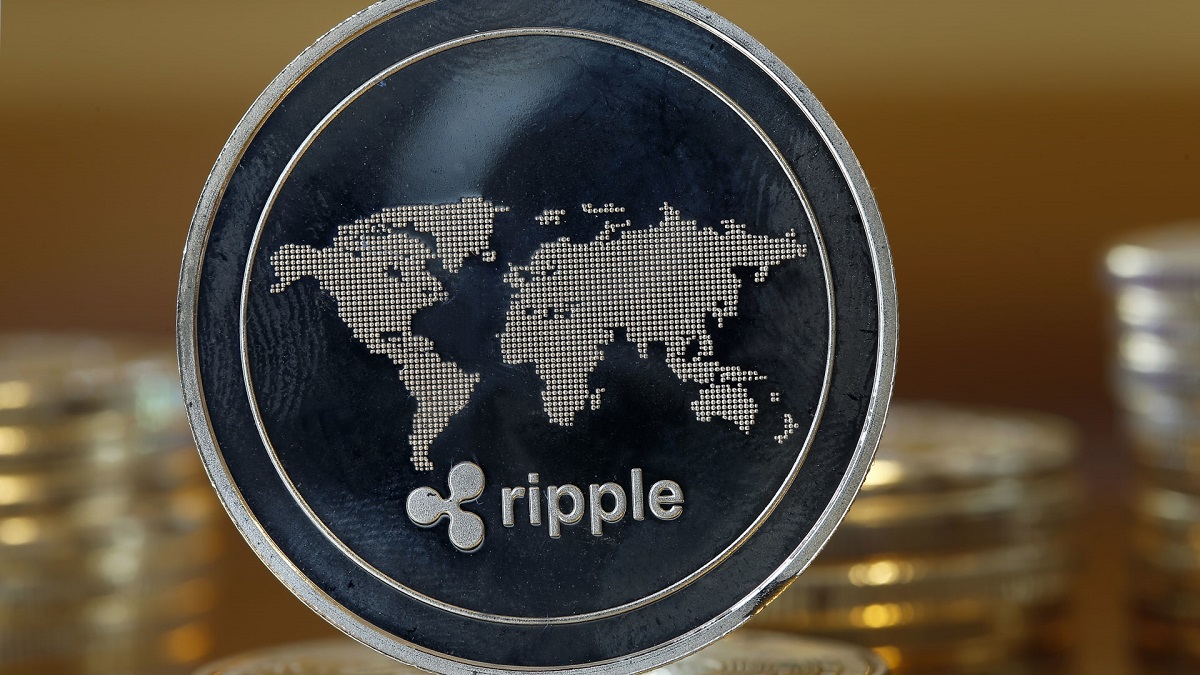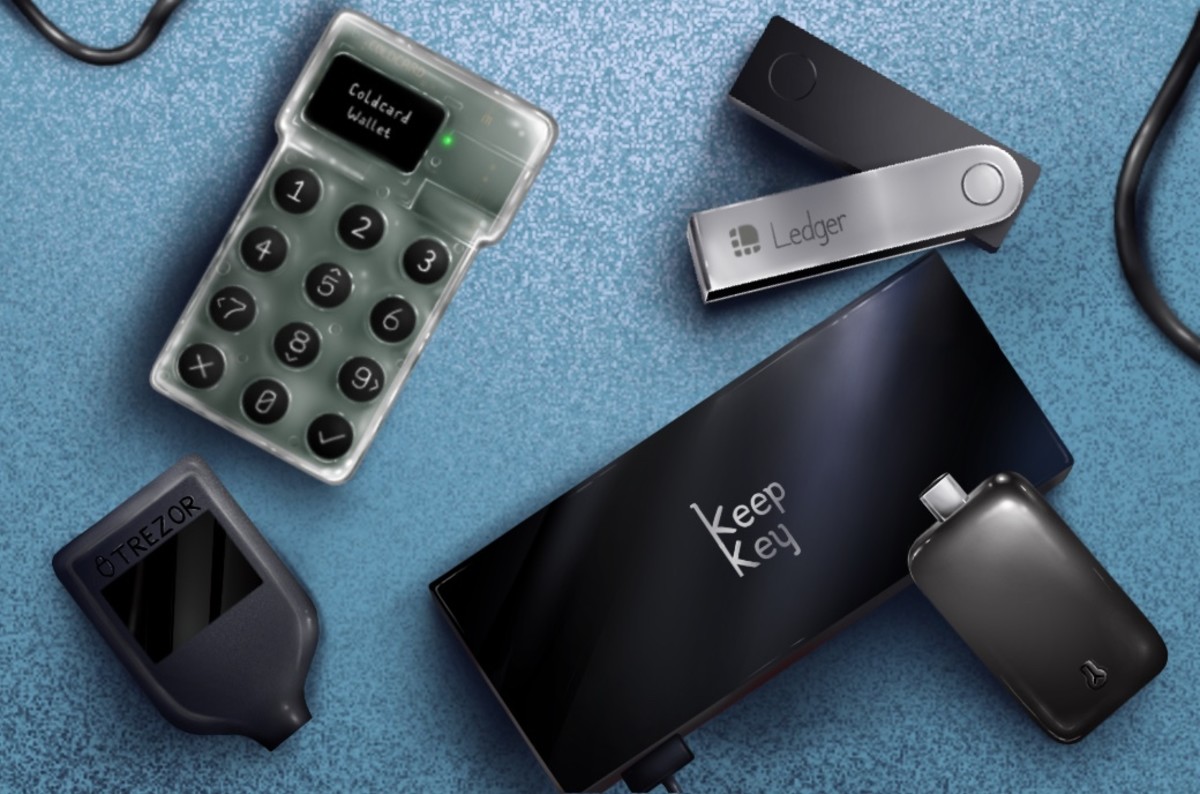Introduction
Ripple, a popular cryptocurrency with a growing community of supporters, has gained significant attention in the digital currency market. As more individuals join the Ripple ecosystem, one question that arises is when will Trezor, the renowned hardware wallet provider, support Ripple?
With the increasing concerns about security and storage of cryptocurrencies, hardware wallets like Trezor have become highly sought after. These wallets offer a secure way to store and manage digital assets, providing peace of mind for cryptocurrency holders.
However, despite its reputation for supporting a wide range of cryptocurrencies, Trezor does not currently offer support for Ripple. This has left many Ripple enthusiasts wondering when this popular hardware wallet will add Ripple to its list of supported coins.
Before delving into the timeline for Trezor’s Ripple integration, let’s take a closer look at what exactly Trezor and Ripple are and why their compatibility is highly anticipated.
What is Trezor?
Trezor is a hardware wallet developed by SatoshiLabs, designed to provide a secure and convenient way for users to store their cryptocurrencies offline. It offers a combination of robust security features and user-friendly interfaces, making it a popular choice among cryptocurrency enthusiasts.
The Trezor hardware wallet is a small, compact device that securely stores private keys and signs transactions. It operates offline, isolating the user’s private keys from potential security threats posed by online platforms. This significantly reduces the risk of hacking and unauthorized access to the user’s digital assets.
With Trezor, users can easily access and manage their cryptocurrencies through a simple and intuitive interface. The device provides a seamless integration with popular cryptocurrency wallets and platforms, ensuring a smooth and hassle-free user experience.
Trezor’s security measures are implemented through a combination of features, including a PIN code, passphrase protection, and a recovery seed. The recovery seed consists of a series of randomly generated words that can be used to restore access to the wallet in case the device is lost, stolen, or damaged. This ensures that users can always regain control over their funds, even in unfortunate situations.
Additionally, Trezor is compatible with various cryptocurrencies, including Bitcoin, Ethereum, Bitcoin Cash, Litecoin, and more. By supporting multiple cryptocurrencies, Trezor allows users to diversify their investment portfolio and securely store different digital assets in one place.
The convenience, security, and compatibility of Trezor have made it one of the most trusted and popular hardware wallets in the cryptocurrency industry. Its commitment to providing a secure storage solution aligns perfectly with the needs of cryptocurrency holders.
What is Ripple?
Ripple, often referred to as Ripple XRP, is both a digital payment protocol and a cryptocurrency. It was designed to facilitate fast and low-cost international money transfers, making it an attractive solution for individuals and institutions involved in cross-border transactions.
Unlike many other cryptocurrencies, Ripple is not built on a decentralized blockchain. Instead, it utilizes a unique consensus algorithm called the Ripple Protocol Consensus Algorithm (RPCA). This algorithm enables quick confirmation of transactions as it does not require mining like Bitcoin or Ethereum.
Ripple’s primary focus is on providing efficient and seamless international remittances. It aims to replace the conventional systems that rely on correspondent banking, which can be time-consuming and costly. With Ripple, transactions can be settled within seconds, providing real-time liquidity for businesses and individuals.
Another distinguishing feature of Ripple is its native digital asset, XRP. XRP plays a crucial role in the Ripple network as it serves as a bridge currency for converting one fiat currency to another. By using XRP as an intermediary, Ripple enables the instant transfer of value between different currencies, eliminating the need for multiple currency exchange steps.
Furthermore, Ripple has gained recognition and adoption by major financial institutions worldwide. Banks and payment providers can leverage Ripple’s technology to improve their cross-border payment infrastructure, reducing costs and transaction times. This has contributed to Ripple’s growing acceptance in the financial industry and has positioned it as a viable alternative to traditional systems.
Ripple’s unique approach to international payments and its potential to revolutionize the banking industry have garnered significant attention. As a result, Ripple has gained a large and active community of supporters who believe in its vision of a faster, more efficient global payment ecosystem.
Given its wide-ranging utility and increasing adoption, the demand for Ripple support on hardware wallets like Trezor has grown significantly. Individuals who hold XRP would greatly benefit from the enhanced security and peace of mind that Trezor provides.
Benefits of using Trezor for cryptocurrency storage
Trezor offers several notable benefits that make it a preferred choice for cryptocurrency storage:
- Enhanced security: Trezor provides a secure offline storage solution, also known as cold storage, which helps protect against hacking and online threats. With private keys stored on the device, the risk of unauthorized access or theft is significantly reduced.
- User-friendly interface: Trezor is designed with a user-friendly interface that makes it easy for both beginners and experienced users to navigate the wallet’s features. The device’s screen and buttons allow for intuitive and straightforward interactions.
- Recovery options: In case of loss, theft, or damage to the device, Trezor offers a recovery seed option. This seed consists of a series of words that can be used to restore access to the wallet. This ensures that users can retrieve their funds even if the device is lost or compromised.
- Multi-cryptocurrency support: Trezor supports a wide range of cryptocurrencies, allowing users to store and manage different digital assets in one place. This eliminates the need for multiple wallets and simplifies the management of diverse cryptocurrency portfolios.
- Compatibility with third-party wallets and platforms: Trezor can be seamlessly integrated with popular third-party wallets and platforms, providing users with flexibility and convenience in managing their digital assets. This enables users to utilize Trezor’s security features while benefiting from the features and functionalities of other wallet interfaces.
- Peace of mind: By using Trezor for cryptocurrency storage, users can have peace of mind knowing that their funds are held securely. The combination of offline storage and strong security measures ensures that their assets are protected from potential online threats.
- Transparent and open-source: Trezor follows a transparent and open-source approach, allowing users to verify the device’s security and integrity. The community can review the device’s code, ensuring that there are no hidden vulnerabilities or backdoors.
The benefits offered by Trezor make it a trusted and reliable option for individuals seeking a secure storage solution for their cryptocurrencies. The addition of Ripple support would further enhance the utility of Trezor, enabling Ripple enthusiasts to securely store and manage their XRP holdings.
Current cryptocurrencies supported by Trezor
Trezor supports a wide range of cryptocurrencies, allowing users to store and manage their digital assets securely. Some of the notable cryptocurrencies currently supported by Trezor include:
- Bitcoin (BTC): Being the first and most well-known cryptocurrency, Trezor fully supports Bitcoin. Users can safely store and manage their Bitcoin holdings on the device.
- Ethereum (ETH): Trezor also offers support for Ethereum, the second-largest cryptocurrency by market capitalization. Users can store and manage their Ether tokens and interact with decentralized applications on the Ethereum network.
- Bitcoin Cash (BCH): As a Bitcoin fork, Bitcoin Cash is also supported by Trezor. Users who hold Bitcoin Cash can securely store and manage their BCH holdings on the device.
- Litecoin (LTC): Known as the silver to Bitcoin’s gold, Litecoin is also compatible with Trezor. Users can store their Litecoin holdings on the device, ensuring the utmost security and peace of mind.
- Ripple (XRP): While Ripple is not currently supported by Trezor, it remains one of the most widely anticipated additions to the list of supported cryptocurrencies. The demand for Ripple support on Trezor has been mounting as the popularity of XRP continues to rise.
- Dash (DASH): Trezor extends its support to Dash, a digital currency known for its fast and private transactions. Users who hold Dash can securely store and manage their holdings on the Trezor device.
- Stellar (XLM): Considered an advanced blockchain project for cross-border payments, Stellar is also supported by Trezor. Users can store and manage their XLM tokens on the device, ensuring they remain secure and accessible.
These are just a few examples of the cryptocurrencies supported by Trezor. The wide range of supported assets enables users to diversify their cryptocurrency portfolios while benefiting from the robust security features offered by Trezor’s hardware wallet.
While Ripple is currently not on the list, the strong demand from the Ripple community suggests that Trezor may explore the integration of Ripple support in the future. This would further enhance the versatility and utility of Trezor as a comprehensive hardware wallet for storing various digital currencies.
The demand for Ripple support
Ripple, with its unique features and growing adoption, has garnered a significant following in the cryptocurrency community. As a result, there is a strong and vocal demand for Trezor, one of the leading hardware wallet providers, to add support for Ripple.
The demand for Ripple support stems from several factors. Firstly, Ripple has gained recognition and adoption by major financial institutions worldwide. Banks and payment providers are increasingly leveraging Ripple’s technology to improve their cross-border payment systems. This adoption has increased the utility and potential value of Ripple’s native cryptocurrency, XRP.
Additionally, Ripple has established partnerships with various financial institutions, including Santander, American Express, and Standard Chartered, among others. These high-profile collaborations have further propelled Ripple’s popularity and created a sense of trust in the cryptocurrency.
Furthermore, Ripple offers fast and low-cost transactions, making it an attractive solution for cross-border remittances. By utilizing Ripple’s technology, individuals and institutions can save time and money on international transfers, bypassing traditional correspondent banking systems.
The demand for Ripple support on Trezor also stems from the desire for enhanced security for XRP holders. As the value of Ripple’s cryptocurrency continues to rise, ensuring the utmost security for XRP holdings becomes paramount. Trezor is renowned for its robust security measures, providing users with peace of mind by keeping their digital assets safe from online threats.
Moreover, Trezor’s compatibility with multiple cryptocurrencies makes it a preferred choice for users who hold various digital assets. Adding Ripple to the list of supported cryptocurrencies would allow individuals to conveniently manage all their different coins within a single hardware wallet.
The demand for Ripple support on Trezor is also reflected in the online discussions and forums within the Ripple community. Many users express their eagerness to see Trezor integrate Ripple, citing the need for a secure storage option for their XRP holdings.
As the popularity and adoption of Ripple continue to grow, the demand for Ripple support on Trezor is expected to increase. Given Trezor’s commitment to providing comprehensive support for a wide range of cryptocurrencies, it is likely that Ripple integration is on their radar.
Though there is no official confirmation or timeline for when Ripple support may be added to Trezor, the demand from Ripple enthusiasts remains strong. It remains to be seen when Trezor will respond to this demand and fulfill the desires of the Ripple community.
Do discussions and plans already exist?
As Ripple gains prominence in the cryptocurrency space, discussions and plans regarding the integration of Ripple support on Trezor have been a topic of interest among the community. While there is no official confirmation or timeline from Trezor regarding Ripple integration, it is worth noting that discussions and speculations surrounding this potential addition do exist.
Within online forums, social media platforms, and cryptocurrency communities, there have been numerous conversations among Ripple enthusiasts expressing their desire to see Trezor support the storage of XRP. Users have discussed the benefits of having Ripple on a renowned hardware wallet like Trezor, emphasizing the importance of security and convenience for storing their XRP holdings.
Moreover, Trezor has been receptive to feedback and suggestions from its users in the past. The company actively engages with its community, seeking input on which cryptocurrencies to add or enhance support for. This open line of communication has led some to believe that Ripple support may be considered in future updates.
Despite the absence of official announcements, the demand for Ripple support on Trezor has not gone unnoticed. Trezor’s team is well aware of the growing interest and the significant community-wide support for Ripple integration. They are likely monitoring the discussions and closely evaluating the feasibility and demand for adding Ripple to their supported cryptocurrencies.
Additionally, as Trezor has a track record of expanding its list of supported cryptocurrencies, it is not far-fetched to assume that discussions regarding Ripple support may already be happening internally. The team may be conducting research, assessing technical considerations, and evaluating the potential impact of integrating Ripple onto the Trezor platform.
While discussions and plans regarding Ripple support on Trezor exist within the Ripple community and potentially within the Trezor team itself, it is important to note that nothing has been officially confirmed at this point. However, the ongoing conversations and the strong demand for Ripple support on Trezor are indicative of the desire for this integration.
Ultimately, time will tell if these discussions lead to concrete plans and the addition of Ripple to the list of supported cryptocurrencies on Trezor.
When can we expect Trezor to support Ripple?
The timeline for Trezor to support Ripple remains uncertain as there has been no official announcement or confirmation from the Trezor team regarding Ripple integration. While there is a strong demand for Ripple support on Trezor, the decision to add new cryptocurrencies to the wallet requires careful consideration and technical implementation.
Adding support for a new cryptocurrency like Ripple involves several factors that need to be taken into account. Trezor’s team must ensure the proper integration of Ripple’s unique features and security protocols into their hardware wallet. This process may involve thorough testing, resolving compatibility issues, and ensuring a seamless user experience.
Additionally, Trezor prioritizes security, and adding new cryptocurrencies requires comprehensive audits of the code and meticulous examination of potential vulnerabilities. This ensures that Trezor users’ funds remain safe and protected from any potential risks associated with the integration of a new cryptocurrency.
The complexity and time required for integrating a new cryptocurrency like Ripple into Trezor’s ecosystem vary depending on various factors, including technical challenges, market demand, and internal development priorities. As a result, it is difficult to estimate a specific timeline for when Ripple support may be added to Trezor.
However, it is important to note that Trezor has a history of frequently updating its firmware and expanding its list of supported cryptocurrencies. This suggests that they actively listen to their community’s feedback and demands. The strong demand for Ripple support, along with the potential benefits it would bring to Trezor users, may influence the Trezor team’s decision to prioritize the integration of Ripple sooner rather than later.
Ultimately, the decision to support Ripple on Trezor lies in the hands of the Trezor team. Users who eagerly await Ripple support should keep an eye on official announcements and updates from Trezor. It is through these channels that Trezor will communicate any future plans or developments regarding Ripple integration.
While it is understandable that the Ripple community and Trezor users desire a clear timeline, it is important to remain patient as the process of integrating new cryptocurrencies requires careful consideration and meticulous implementation.
Rest assured, the Trezor team is undoubtedly aware of the demand for Ripple support and will continue to evaluate the potential integration based on technical feasibility, market demand, and the overall benefit it brings to Trezor users.
Conclusion
The demand for Trezor to support Ripple is evident among the Ripple community. While Ripple is not currently supported by Trezor, discussions and plans regarding this potential integration have been a topic of interest. Trezor, a leading hardware wallet provider, is known for its commitment to security and compatibility, supporting a wide range of cryptocurrencies.
With its secure offline storage and user-friendly interface, Trezor offers a convenient solution for cryptocurrency storage. However, the addition of Ripple support would further enhance Trezor’s utility by allowing Ripple enthusiasts to securely store and manage their XRP holdings alongside other supported cryptocurrencies.
While the timeline for when Trezor will support Ripple remains uncertain, it is important to acknowledge that the Trezor team actively listens to its community’s feedback and demands. The strong desire for Ripple support, coupled with Trezor’s history of integrating new cryptocurrencies, suggests that Ripple integration may be considered in the future.
Discussions and plans regarding Ripple support exist within the Ripple community, and the Trezor team is likely assessing the feasibility and demand for this integration. However, it is crucial to remember that the process of integrating a new cryptocurrency involves thorough testing, ensuring security, and resolving technical challenges.
As Ripple continues to gain recognition and adoption globally, the demand for Ripple support on Trezor is expected to grow. It is recommended for Ripple enthusiasts to stay updated with official announcements and updates from Trezor to learn about any future plans or developments regarding Ripple integration.
While the specific timeline for Ripple support on Trezor is uncertain, the demand from the Ripple community and the benefits it would bring to Trezor users are factors that may influence the decision of the Trezor team. Until then, users can continue to rely on Trezor’s existing support for other popular cryptocurrencies and explore alternative options to securely store their XRP holdings.
In conclusion, the demand for Trezor to support Ripple remains strong, but the timing of Ripple integration onto the Trezor platform is yet to be determined. Trezor’s commitment to security, compatibility, and community engagement offers hope for the potential addition of Ripple support in the future.







